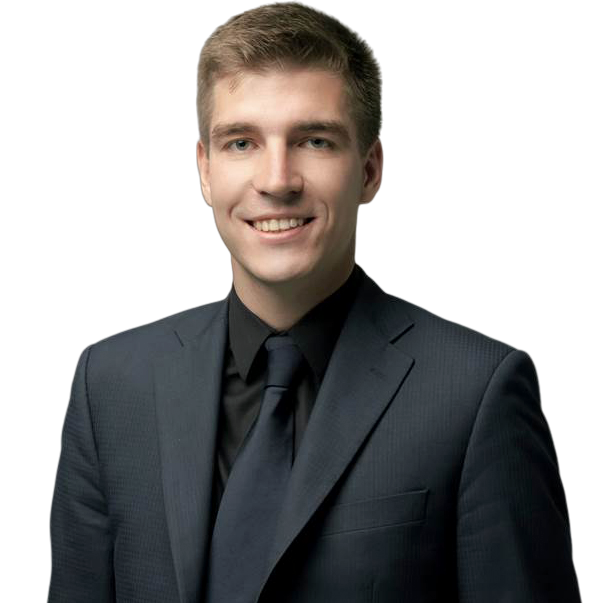Interview Alumni
Ivan Bondarchuk
Head of Energy with LCF Law Group / Alumni Energy and Environmental Law LL.M. 2018

Degree obtained/Class of:
Energy and Environmental Law LL.M., 2017-2018
Current position / Employer:
Head of Energy with LCF Law Group 1 (Top-Tier Ukrainian Law Firm)
Why did you choose to study law?
In my high school years, legal profession was among the most popular topics to study in Ukraine. However, this fact was not the key for my choice.
A few years before graduation from high school, I simply understood that I was better in political science than in mathematics and natural science. I liked public speaking and communication more than counting and formulas.
Additionally, I was enthusiastic towards sports, especially soccer. Later, even in my first years of law school, I was thinking about a professional soccer career, but that is a different story.
The fact is that a legal career gave me everything I was seeking. It is public and challenging: you always know if you win the case or close the deal.
Why did you choose to study at Tulane University Law School?
I was a Fulbright Scholar and Tulane was one of my two final options. I wanted to focus on more energy-industry related courses, rather than general environmental law disciplines. Tulane impressed me with its Energy Law Center and deep industry and business-oriented LL.M. program, including Energy Law, International Energy and Oil and Gas Law courses taught by dedicated practitioners such as Professors Talus, Sloan and Hebert.
What was your contact to other students like? Did you profit from Tulane University Law School’s network?
Our International Student community was very friendly, supportive and challenging. You always wanted to do your best when surrounded by strong classmates. I think, this resulted in better discussions with each other. Outside the class, I also had a great time with Tulane Soccer Club mates. Before coming to New Orleans, it had been a few years since I had played competitive sports in Ukraine. At Tulane, I realized that I still wanted to pursue serious competitive sports. Together with the Tulane Soccer Club, we played State and Regional Leagues. This helped me join the amateur team, Motagua of New Orleans and play even higher for the US Open Cup.
Do you still have contact to your study colleagues?
I have contacted Professor Talus for some professional matters.
I was also extremely pleased to meet him at the European Energy Law Conference in Vienna in October 2019.
Where there any alumni reunions after you finished your LL.M? If yes, how did they look like?
Unfortunately, not yet. During the first two years I was under J-1 visa restriction and had to reside in Ukraine for at least 2 years after my graduation in the US. Later in 2020, I planned to travel to the US and obviously visit NOLA and meet Tulane people and other alumni. However, this plan was postponed due to COVID restrictions. Nevertheless, the plan is still on the table and, hopefully, next year I will be able to reschedule my plans.
How did attending Tulane University Law School change your career?
Strictly speaking, I received the position of Head of Energy in a top-tier Ukrainian law firm within 2 years after my graduation from Tulane.
It is important to mention that I started my LL.M. after a 5-year energy-law career at a Ukrainian law firm. I had an understanding of the energy industry, business. and regulations, especially in the electricity market. With this background, the Tulane LL.M. program gave me in-depth understanding of the energy law concepts, best practices and regulatory approaches. Also, with already being deeply involved in the industry, I benefited from conversations with our Professors about their experiences in the energy business.
Besides this, US law school sharpens soft skills such as critical thinking, negotiations, legal writing and reasoning. In my opinion, students in Civil Law countries are not trained well enough in this aspect as they are slightly overloaded with a lot of statutory material. As a result, lawyers holding both Civil Law and Common Law Degrees are much better prepared for their career.
I was not an exception, the Tulane LL.M. Program boosted my professional qualities and career.
Which was your favorite course / part of the program you attend?
Personally, I most preferred Energy Law by Professor Sloan and International Energy Law by Talus.
Oil and Gas Law was, probably, one of the most interesting and practical courses. However, it was not so useful for me at that time, because US rules are very special ones. You hardly find such rules for subsurface activity outside of the US.
The Environmental Law course given by Professor Houck was also very practical. Students had an opportunity to understand the impacts of the energy business and its influences on nature, which should be dealt with and mitigated.
Why would you recommend Tulane University Law School’s study program to future students?
Most likely, one should find plenty of supporting arguments for Tulane University Law School after reading this interview.
Personally, I would recommend the school for its extremely industry-oriented Energy Law LL.M. program and great treatment of students. Throughout the whole year, from preparatory orientation to commencement, I enjoyed being a Tulanian and felt support from the professors and staff.
And after all, NOLA is simply a great place for earning a law degree: you always have time to study and places to go.